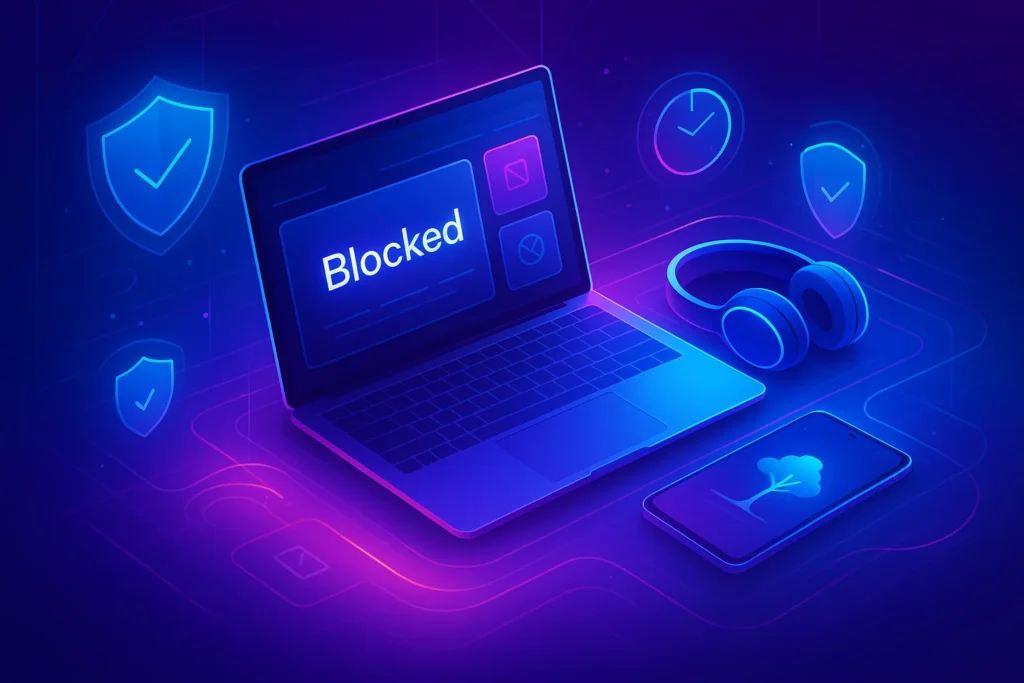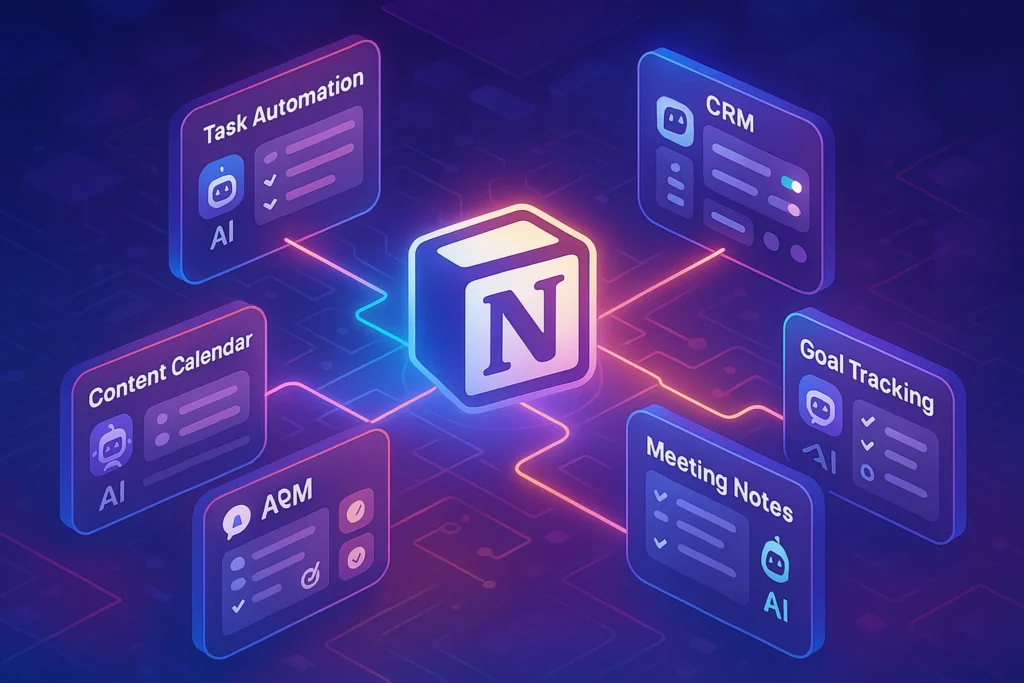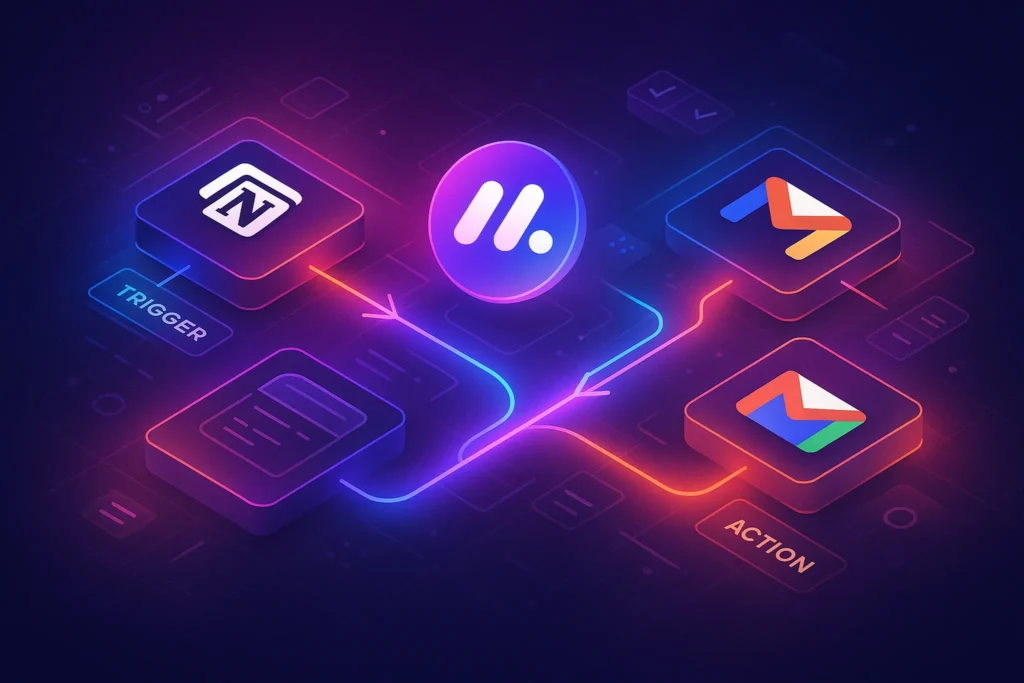Intro:
Distractions are the silent productivity killers of the modern age. Every ping, pop-up, or endless scroll can derail your flow and cost you hours. But here’s the irony: while technology fuels most distractions, it also provides the tools to eliminate them.
In Mastering Focus in the Age of Digital Distractions, we explored why staying concentrated is harder than ever. In this post, we’ll go tactical—breaking down apps, gadgets, and AI-powered assistants designed to help you carve out distraction-free work zones and reclaim deep focus.
Focus Apps: Digital Barriers for a Distracted Age
When it comes to battling digital distractions, focus apps are the first line of defense. Tools like Freedom, Cold Turkey, Serene, and RescueTime are designed to block interruptions and help you stick to your schedule.
-
Freedom lets you block specific apps, websites, or even the entire internet across multiple devices. Ideal for writers, students, or remote workers who can’t risk wandering into social feeds mid-task.
-
Cold Turkey is the tough-love approach. It enforces strict blocks that can’t be bypassed easily, perfect if willpower alone isn’t enough.
-
Serene combines blocking with focus sessions, prompting you to set a single goal per session—aligning well with methods like Time Blocking vs. Pomodoro.
-
RescueTime works differently: instead of blocking, it tracks where your time goes, sending nudges when you drift into unproductive zones.
Each app offers a different level of strictness, but all help you break the endless cycle of tab-switching and doomscrolling.
Gamified Tools: Turning Focus Into a Game
Sometimes willpower needs a motivational boost. That’s where gamified focus tools like Forest and Habitica shine.
-
Forest plants a digital tree whenever you stay focused. Leave the app to check social media, and your tree dies. Over time, you can grow entire forests—visual proof of your discipline. It’s playful psychology that makes focus rewarding.
-
Habitica turns your task list into a role-playing game. Complete tasks and you earn rewards; slack off and your character weakens. For creative teams or those who thrive on small wins, this gamification keeps focus fresh and engaging.
Gamified tools are especially effective for people who struggle with procrastination—an issue we covered in How to Overcome Procrastination with Technology.
Noise & Environment Control
Focus isn’t just about digital distractions. Environmental noise can shatter your concentration just as effectively as a text notification.
-
Noise-Cancelling Headphones: Premium models like the Sony WH-1000XM6 or Bose QC series create quiet bubbles anywhere, from busy cafés to noisy offices.
-
Soundproofing Gadgets: Portable white noise machines or sound-dampening panels can turn chaotic environments into manageable workspaces.
-
Ambient Sound Apps: Some workers find calm in curated soundscapes—like rain, forest, or café sounds—that mask sudden disruptive noises.
The right sound environment complements focus apps, ensuring your mind isn’t tugged in a dozen directions by background chatter.
Minimalist Devices
Sometimes, the solution isn’t another app but less tech altogether. Minimalist devices like the Light Phone or distraction-free e-ink tablets are designed with simplicity in mind.
The Light Phone does one thing well: calls and texts. No email, no endless notifications. For people who need occasional digital detox, this type of device ensures focus without going fully offline.
Similarly, distraction-free tablets strip out app stores and browsers, letting you read, draft, or sketch in peace. By intentionally limiting features, these devices remind us that less can be more when chasing deep work.
AI-Powered Focus Assistants
The newest category of tools harnesses AI to help you focus more intelligently. Instead of blunt blocking, AI copilots optimize your schedule dynamically.
-
Motion uses AI to schedule your day, automatically prioritizing tasks while leaving space for deep work blocks.
-
Reclaim.ai integrates with your calendar, defending time for focused work by automatically moving meetings.
-
Notion AI Focus Modes help teams cut through noise by summarizing updates and pulling only the most relevant tasks into view.
These tools go beyond blocking—they proactively shape your workday to reduce distractions before they even arise. It’s a glimpse into how AI will increasingly automate personal productivity, much like we explored in How AI Can Automate Your To-Do List and Calendar.
How to Choose the Right Tool
Not every distraction-blocker suits every workflow. Choosing the right tool depends on:
-
Budget: Many apps offer free trials, but serious blockers often require subscriptions. Hardware like noise-cancelling headphones can be a larger investment.
-
Operating System & Device Ecosystem: Make sure the app works across your devices. Freedom’s cross-platform sync, for instance, is perfect for multi-device users.
-
Workflow Fit: A gamified tool may motivate some people but feel gimmicky to others. AI-driven assistants require trust in automation, while minimalist devices appeal to those seeking simplicity.
The goal isn’t to use every tool—it’s to find the mix that best complements your work style and helps you build sustainable focus habits.
Want More Productivity Hacks?
Subscribe to NerdChips Weekly for deep-dive guides on focus tools, distraction blockers, and the science of getting things done.
100% privacy. No spam. Just practical insights to level up your productivity.
📊 Comparison Table: Focus Tools Overview
| Tool/Device | Platform/Type | Focus Method | Best For |
|---|---|---|---|
| Freedom | Cross-platform app | Website/app blocking | Writers, remote workers |
| Cold Turkey | Desktop app (Windows/Mac) | Strict blocking (non-bypass) | Students, strict enforcers |
| Serene | Mac app | Single-goal focus sessions | Professionals using time-blocks |
| RescueTime | Cross-platform app | Tracking + nudges | Self-analytical workers |
| Forest | iOS/Android app | Gamified tree-planting | Gamification lovers |
| Habitica | Web + mobile | Gamified task management | Teams, RPG fans |
| Sony WH-1000XM6 | Hardware (headphones) | Noise cancellation | Travelers, open offices |
| Light Phone | Minimalist phone | Distraction-free communication | Digital detox users |
| Motion / Reclaim.ai | AI scheduling assistants | Automated calendar defense | Knowledge workers, managers |
🎨✅ Checklist: 5 Steps to Build Your Tech-Powered Focus Zone
-
Identify your biggest distraction triggers (apps, noise, multitasking).
-
Pick one blocking app that fits your discipline level.
-
Add an environment control tool like headphones or white noise.
-
Test AI scheduling assistants to protect deep work blocks.
-
Pair it all with Pomodoro or Time Blocking to sustain momentum.
Nerd Tip: Don’t just rely on blockers—pair them with Pomodoro or time-blocking techniques. Tech helps remove distractions, but structure keeps your focus sharp.
🎧 Ready to Block Distractions for Good?
Explore top focus apps, AI assistants, and distraction-proof gadgets—from Freedom and Cold Turkey to noise-cancelling headphones and minimalist phones.
Case Studies & Scenarios
Sometimes the best way to see the power of focus tools is through real-world scenarios.
-
Freelance Writer Using Freedom: A freelance copywriter who struggled with constant Twitter and YouTube distractions set up Freedom sessions for four hours each morning. Within two weeks, their average daily writing output doubled, and deadlines stopped feeling like emergencies.
-
Remote Team with RescueTime and Motion: A distributed marketing team noticed meetings were eating up 60% of their workweek. By combining RescueTime analytics with Motion’s AI scheduling, they discovered that half their calls were redundant. Cutting unnecessary meetings and protecting focus blocks gave them back an extra 12 hours per week per team member.
-
Student with Forest: A university student preparing for exams used Forest to gamify their focus sessions. Over the course of a month, they grew a digital forest representing 60 hours of focused study. This simple visual tracker kept motivation high and screen distractions low.
These case studies illustrate how small tech tweaks can unlock major productivity gains across different professions.
The Science of Focus
Why do these tools work? The answer lies in psychology and neuroscience.
Our brains are wired for novelty and reward. Every notification triggers a dopamine release, which is why it feels nearly impossible to ignore alerts. Over time, this erodes our ability to sustain deep work. Blocking apps cut off those dopamine triggers, allowing the brain to stay in flow.
Noise control also has scientific backing. Studies show that ambient noise above 85 decibels reduces working memory and concentration. That’s why noise-cancelling headphones or white noise apps improve cognitive performance—they reduce “cognitive load” by removing irrelevant sounds.
Finally, time-based methods like Pomodoro work because the brain thrives on rhythm. Breaking work into 25–50 minute sprints with rest intervals helps sustain attention and avoid burnout. Pairing these methods with tech tools gives you both structure and protection.
This reinforces what we explored in Top Productivity Hacks Backed by Science—science + tools = sustainable focus.
Hybrid Focus Strategies
The most effective focus systems don’t rely on a single app or gadget—they combine tools with methods.
-
Cold Turkey + Pomodoro: Use Cold Turkey to block distractions during 25-minute Pomodoro sessions. The app enforces the discipline while the method structures your time.
-
Noise-Cancelling Headphones + Ambient Apps: Wearing WH-1000XM6 headphones while running an ambient app like Noisli creates an immersive, interruption-free workspace.
-
Minimalist Phone + AI Calendar Assistants: A Light Phone keeps personal distractions away, while Motion or Reclaim.ai dynamically defend work focus time in your schedule.
This hybrid approach ensures you’re not just leaning on tech but weaving it into proven productivity habits.
Limitations & Ethical Questions
While focus tech is powerful, it’s not flawless.
-
Over-Reliance: Depending too heavily on blockers may weaken self-discipline. If you can’t resist distractions without them, long-term resilience may suffer.
-
Privacy Concerns: Tools like RescueTime and Motion track your work patterns. For teams, this data can feel invasive if not handled transparently. Employees need to know how their focus data is used.
-
False Security: Buying expensive gadgets like minimalist phones won’t automatically make you more productive. Tools are only as good as the systems you build around them.
These limitations are reminders that focus tech should support your discipline, not replace it. Balance is essential.
Future of Focus Tech
What comes after blockers, headphones, and scheduling assistants? The future of focus technology looks promising—and a little futuristic.
-
Wearable Focus Trackers: Smartwatches and headbands that monitor stress, brain activity, or attention levels, gently nudging you back into focus when your mind wanders.
-
Smart Offices: Environments that adapt lighting, temperature, and even notification filters based on your workflow and focus cycles. Imagine your workspace dimming lights and silencing pings the moment you enter a deep work session.
-
Next-Gen AI Copilots: AI that doesn’t just block or schedule but actively predicts when you’re about to lose focus—steering you back before distraction even happens.
As AI and IoT converge, the next generation of tools may create personalized deep work ecosystems, blending hardware, software, and behavioral science into one seamless experience.
🧠 Nerd Verdict
Technology might be the cause of modern distraction, but it’s also the cure. From strict blockers like Cold Turkey to AI assistants like Motion, the right combination of tools can help you defend your attention and build an environment where deep work thrives.
Pairing these tools with proven methods like Pomodoro or time blocking makes the results even stronger, ensuring your focus isn’t left at the mercy of endless notifications.
❓ FAQ: Nerds Ask, We Answer
💬 Would You Bite?
Would you trust apps and AI assistants to defend your focus, or do you think the only real solution is pure self-discipline?



